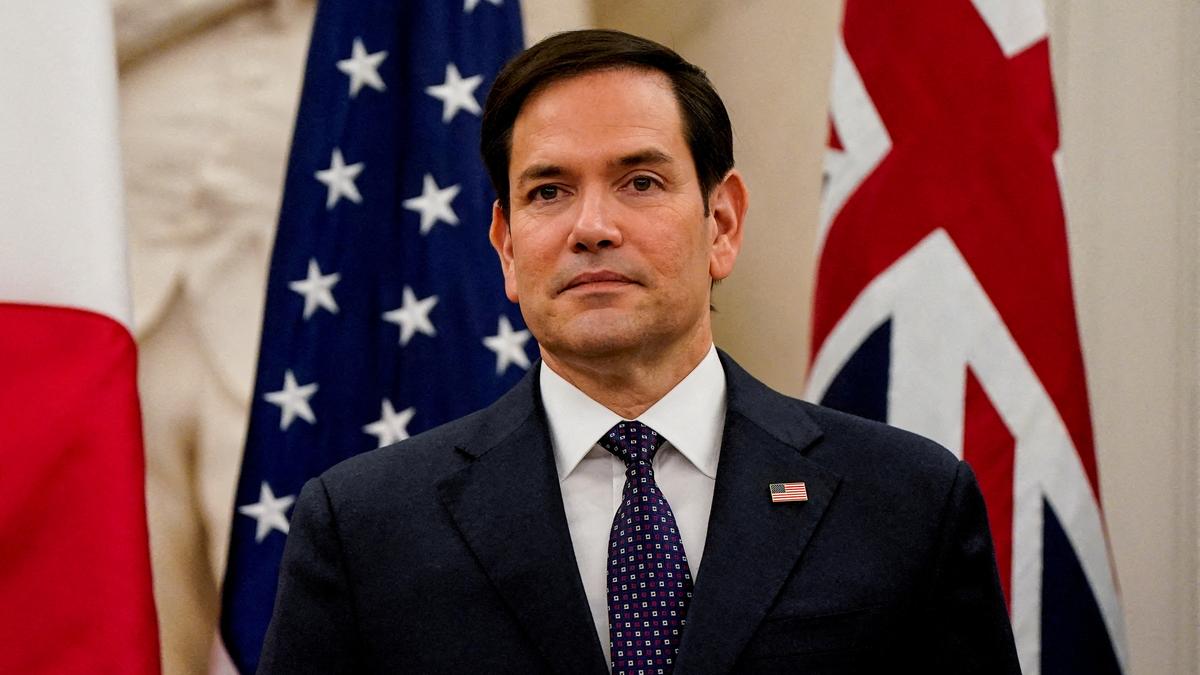In a world grappling with geopolitical tensions, the US-China relationship has emerged as a defining issue of our time. Recent developments signal a significant shift in this complex dynamic, and understanding its intricacies is crucial. Buckle up, because we're diving into the heart of the matter – the evolving relationship between the US and China under the Trump administration's renewed leadership. From trade wars to Taiwan tensions, we'll unravel the key issues and analyze the implications for global stability.
Trump's America First Policy and its Impact on US-China Relations
The Trump administration's "America First" policy significantly impacted US-China relations. Secretary of State Marco Rubio's conversation with Chinese Foreign Minister Wang Yi underscored this, emphasizing a focus on advancing American interests. This prioritization of domestic concerns led to the trade war which implemented tit-for-tat tariffs. This aggressive approach aimed to correct perceived trade imbalances, causing significant disruption to the global economy and adding more than just spice to the political dish; it set the stage for the years of intense geopolitical friction we've experienced recently. But these weren't merely economic skirmishes; they were powerful symbolic moves demonstrating America’s changing attitude.
Understanding the Trade War and its Consequences
The trade war was far more than just tariffs; it reflected a profound shift in the approach towards international commerce. This economic conflict was not just about trade figures; it was about asserting dominance and rewriting the rules of global trade and this new worldview caused an unpredictable response in other nations and alliances. The escalating tensions disrupted supply chains, impacting businesses and consumers worldwide, which created even more of an incentive for these other nations to look for alternate allies. It also signaled the start of a fierce battle over technological supremacy, causing both countries to adopt a more protectionist approach toward their home-grown talent and innovation. One result of this is a renewed investment and a global competition for the best and brightest minds.
Beyond Trade: Geopolitical Tensions and Regional Conflicts
The tensions between the US and China extend far beyond economic issues. Taiwan’s precarious position serves as a key flashpoint. China's coercive actions towards Taiwan are a major concern for the United States, as is China's assertiveness in the South China Sea. These actions pose threats to regional stability and challenge the international rules-based order which is precisely what has put other world leaders on notice.
The South China Sea Dispute: A Growing Concern
The South China Sea dispute isn't just a territorial squabble; it has deep economic and strategic implications. Multiple nations—Vietnam, the Philippines, Malaysia, Brunei, and Taiwan—have overlapping claims, leading to heightened tensions. This conflict represents an important strategic chokepoint, significantly impacting global shipping lanes and trade, and underlining how easily even indirect conflicts can escalate quickly. China's claims in this region raise significant questions over maritime law and the global community’s response to what many see as clear attempts to dominate and redefine international norms.
Legislative Actions: Addressing US-China Relations Through Congress
The US Congress actively works to shape policy regarding China. Bills like the Restoring Trade Fairness Act, aimed at revoking China's Permanent Normal Trade Relations (PNTR) status, reflect the sentiment of lawmakers toward strengthening trade practices and taking a strong stance toward Beijing's aggressive strategies. These measures were designed to limit the impact that China might have in specific areas, ranging from trade practices to limiting China’s encroachment near critical military installations.
The Restoring Trade Fairness Act and other Legislative Initiatives
The legislation is meant to serve multiple objectives ranging from adjusting trade balances, to strengthening manufacturing capabilities here in the United States. It is a concerted effort by Congress and policymakers to level the trade playing field with China, particularly focusing on transparency, economic fairness, and adherence to international standards of behavior and conduct. All of this reflects a deep skepticism regarding the Chinese Communist Party’s (CCP) commitments to fair trade practices and compliance with internationally recognized norms. The overarching intention appears to be about curtailing China’s growing economic influence and leveling the trade playing field. This effort was, and still is, met with mixed reception.
The Future of US-China Relations
Navigating the complexities of the US-China relationship is critical. The current tension represents a key geopolitical turning point in the 21st Century and necessitates innovative solutions that preserve American interests and promote global stability. However, both countries need to take a long and hard look at what is being done, and how it impacts global stability.
Finding Common Ground Amidst Disagreement
Finding common ground and de-escalating tensions is imperative. While safeguarding U.S. interests and upholding the rules-based order is of primary importance, it is also critical to ensure stability. One crucial aspect here is clear and open communication and dialog. Both nations, and the broader international community, would benefit from transparency and predictability, even in the context of differences and ongoing concerns about the lack of transparency.
Take Away Points:
- The Trump administration's "America First" approach significantly altered US-China relations, emphasizing domestic priorities.
- The US-China trade war had extensive economic repercussions worldwide.
- Beyond trade, concerns about Taiwan and the South China Sea are significant.
- Congress is actively involved, implementing legislation to counter China’s influence.
- Finding common ground and de-escalating tensions is vital for future global stability.









